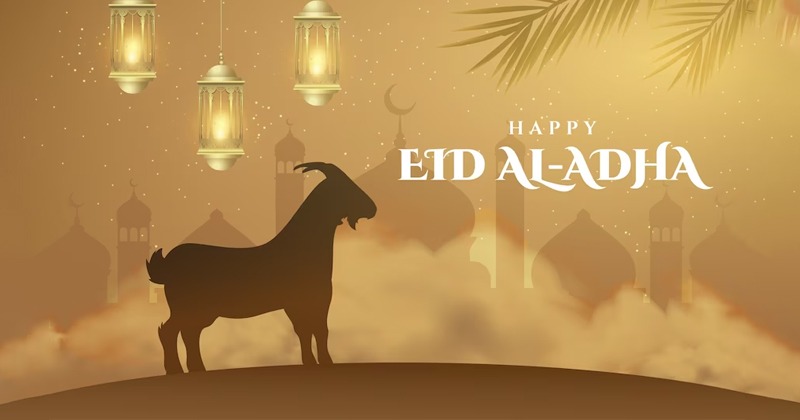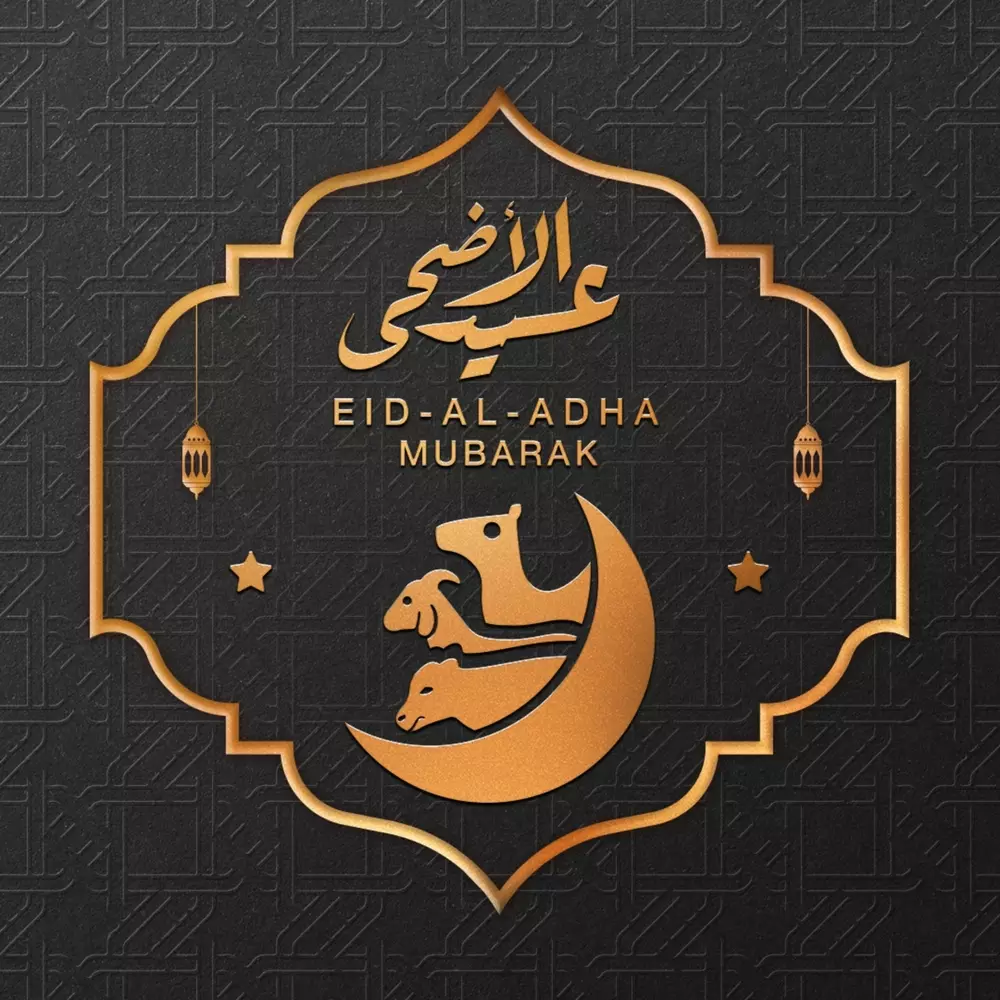More About Eid Al Adha 2025:
- Eid al-Adha, the Feast of Sacrifice, is a major Islamic holiday celebrated by Muslims worldwide. This year, it lands on June 6, 2025.
- The holiday commemorates Abraham’s willingness to sacrifice his son and involves prayer, feasting, and acts of charity.
- Dhul Hijjah, the final month of the Islamic calendar, is a time of increased devotion, including fasting and, for some Muslims, the Hajj pilgrimage. Eid al-Adha is on the 10th day of the month.

On June 6, 2025, the 10th day of the month of Dhul Hijjah, thousands of Muslims celebrate Eid al Adha 2025, also called the Feast of Sacrifice, the second major Islamic holiday. For Muslims, it is the second most important religious holiday of the year, after Eid al-Fitr at the conclusion of Ramadan.Dhul Hijjah, the last month in the Islamic calendar, started on May 28. While some Muslims continue their Hajj journey in Mecca, many will finish observing the first ten days of Eid al-Fitr.
What is Eid al-Adha? Saudi Arabia confirms start date for Islamic holiday, which commemorates sacrifice?
Dhul Hijjah is the 12th and last month of the Islamic calendar. Saudi Arabia recently declared that Eid al-Adha comes on June 6, 2025, the tenth day of Dhul Hijjah.The Quran states that Eid al-Adha honors the Prophet Abraham’s readiness to offer his son Ishmael as a sacrifice for God’s sake, but God intervened and brought a ram to be offered in his place.The second important Islamic holiday is Eid al-Adha. The lunar calendar, upon which the Islamic calendar is founded, aids in identifying and forecasting the dates of Islamic months and holidays.
What do Muslims do on Eid al-Adha?

Islamic Relief strongly advises fasting throughout the first nine days of Dhul Hijjah. Eid al Adha 2025 marks the end of the fast. Muslims who fasted for the preceding nine days of Dhul Hijjah may find it odd to eat throughout the day, but Eid al Adha 2025 is a day when Muslims are not allowed to fast.On Eid al-Adha, Muslims rise early, just like on Eid al-Fitr, to start cooking and preparing for the obligatory Eid prayers at nearby mosques.Muslims will observe Eid by adhering to the Prophet Muhammad’s path, which is known as the Sunnah in Islam.
Sunnah is observed not just on Eid but every day.Eid sunnahs include bathing or showering in the morning, dressing in one’s finest attire and perfume, walking a different route home from Eid prayers, or praising God while en route to Eid prayers by chanting “Takbeer” (“Takbir”). Muslims will give their loved ones hugs and say “Eid Mubarak,” which translates to “blessed festival” in Arabic.Known as “Eidi,” friends and families usually get together in their homes to share delectable food and give money as gifts to youngsters.
We encourage Muslims to participate in Qurbani, particularly during Eid al-Adha.
What is Qurbani, the Eid al-Adha sacrifice?
The slaughter of an approved animal, known as qurbani, symbolizes the sacrifice that Prophet Abraham was prepared to make. Camels, goats, cows, sheep, and lambs are among the approved animals for sacrifice. It is required to give a third of the meat to the poor.
Friends and family receive one-third of the meat, while the individual keeps the remaining third. Many Muslims may either donate to charities that support Qurbani programs that help those in need or visit slaughterhouses that engage in zabiha, the Islamic practice of killing animals for Qurbani sacrifice.
What is Dhul Hijjah?
On May 28, 2025, the waxing crescent moon was sighted, marking the start of Dhul Hijjah, the last Islamic month. The duration will be between 29 and 30 days.The first ten days of Dhul Hijjah are regarded by many Muslims as the greatest days of the year.
According to Islamic Relief, they are a time for Muslims to concentrate on bolstering their religion. In the Islamic calendar, these ten days following Ramadan are regarded as a second opportunity to turn from sin and receive rewards.Muslims will perform the Hajj, a required spiritual pilgrimage, visiting sacred locations in Saudi Arabia on Dhul Hijjah. The Hajj lasts for five to six days, starting on the eighth day of Dhul Hijjah.
On June 4, it started.Muslims who are unable to perform the Hajj are urged to fast for the first nine days of Dhul Hijjah since it can result in significant benefits and sin forgiveness. According to Islamic Relief, the Prophet Muhammad stated in Hadith that the sins of the previous year and the upcoming year are forgiven if one fasts for the first nine days of Dhul Hijjah.Fasting is not required for these nine days, unlike Ramadan.
Fasting, however, is strongly advised since it is Sunnah (the Prophet’s method), particularly on the ninth day, known as Yawm al-Arafah.Since Eid al-Adha falls on the tenth day of Dhul Hijjah, Muslims are not allowed to fast on that day.





